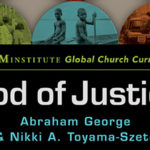WACO—To preserve spiritual vitality, Baptists must reconsider salvation as more than a mere transaction with God, church historian Bill Leonard noted during the Parchman lectures at Baylor University’s Truett Theological Seminary .
In 1612, just three years after he helped found the first Baptist church, Thomas Helwys wrote that converts join the church “upon their own confession of the faith and sins,” reported Leonard, dean of Wake Forest University’s Divinity School.
“Today, Baptists the world over would surely agree with that statement—at least in principle,” Leonard said. “But in practice, many Baptists groups lack consensus on what it really means to confess one’s faith.
Meaning of regeneration
“If, historically, Baptists require that the church be composed of a ‘regenerate’ membership, what in the world do they mean by ‘regeneration,’ and how does one secure it?”
Accounts of the process of salvation have varied widely throughout church history, Leonard reported. Some salvation experiences have been dramatic, such as the Apostle Paul’s “Damascus Road” conversion, he said, listing a half-dozen other surprising conversions, from the New Testament to the 20th century.
“But not everyone reports such dramatic encounters with the Divine,” he added, citing occasions where believers were nurtured into the faith and have no conscious memory of being “apart from grace.”
Throughout church history, Catholics and Protestants disagreed about how salvation comes about, he said. But even among Protestants, who claim “faith alone” is necessary for salvation, perspectives were not uniform.
Questions about salvation
Sign up for our weekly edition and get all our headlines in your inbox on Thursdays
This poses a set of questions, Leonard proposed: “How do common sinners know that grace has come to them? What does it mean to be saved for eternity? How does one receive salvation and keep it too? In short, how does the objective idea that God loves human beings and wants to ‘save’ them find its way into the subjective life of individuals so that they know that grace has come to them and salvation has been secured?”
Baptists responded by insisting the church is for the “saints only,” and requiring that every individual who would join a congregation “profess” faith in Jesus Christ, he said. Early Baptist congregations were not passive about this, either. They voted whether to accept or reject the applicant’s profession of faith as valid.
Consequently, this led Baptists to reject infant baptism, since infants, “incapable of such a cathartic experience, were not appropriate subjects for faith or baptism,” he said.
Baptists couldn't agree
But even Baptists could not agree on “who could be saved and how salvation was secured,” Leonard noted.
General Baptists—who believed in a “general atonement” or that salvation is possible for all people—thought a person repented, expressed faith and then was “regenerated,” or saved.
Particular or Calvinistic Baptists—who believed in a “particular atonement” or that God would save only the “elect” whom God had chosen for salvation—thought salvation was “made possible only by the infusion of grace into the heart of totally depraved but elected individuals.” So, an elect person receives grace first, then repents and expresses faith.
Both perspectives were present in America, but the Calvinist approach prevailed until religious awakenings broke out in New England and revivalism advanced with westward migration, Leonard said.
“Revivalism created a theology of conversion and a methodology for securing it that shaped Baptist life to the present day,” he explained.
Walking the aisle
“Revivalists called the unsaved to walk the aisle as an outward and visible sign of an experience of new birth. The ingredients of salvation in these settings included faith, submission, repentance and a conscious decision to follow Christ.”
This process became the norm and developed into a “transactional formula” that was focused on the Sinner’s Prayer and walking the “sawdust trail” of a tent revival or the aisle of a church, Leonard said.
“By the mid-20th century, the Sinner’s Prayer became the centerpiece of mass revivalism and conversionism for audiences large and small,” he said.
Consequently, “conversion turned from a surprising work of God into a salvific transaction,” he observed. A byproduct of that transaction was not just merely an emphasis on becoming a Christian but a de-emphasis on sanctification, or living a Christ-like life.
Also, this transaction approach to salvation was reinforced by the phrase “once saved, always saved,” Leonard said. While the statement sounds like a shorthand explanation of the doctrine of perseverance of the saints, it began to imply “that once the prayer was prayed, and the transaction sealed, God was compelled to save.”
Gift or entitlement?
“Salvation was less a gift than an entitlement, once the necessary transaction was complete,” he noted. “Completing the transaction became the most, actually the only, real responsibility of sinners seeking eternal security. … The result has been a significant confusion as the idea of a believers’ church and the nature of conversion itself. In many churches, the same people are born again, again and again.”
Leonard called on Baptists to revisit their theology of regeneration and to confront the “theological and pastoral problems of transaction conversionism.”
Baptists share common ground with—and have something to learn from—the emerging church movement, one of the voices “raised in response to this evangelical confusion,” he said.
This movement insists “personal salvation is inseparable from covenant community—a strangely 17th century Baptist idea,” he said. “Salvation is itself an abidingly sacramental process, nurtured not in rabid individualism but in communal humility.”
He quoted emerging church leader Joel McClure: “The gospel is not that we agree with some abstract propositions in order to qualify to go to heaven when we die, but an invitation to live in a new way of life. Sharing the good news is not only about conversion. It is about inviting someone to walk with you relationally, and it takes awhile to demonstrate this gospel.”














We seek to connect God’s story and God’s people around the world. To learn more about God’s story, click here.
Send comments and feedback to Eric Black, our editor. For comments to be published, please specify “letter to the editor.” Maximum length for publication is 300 words.